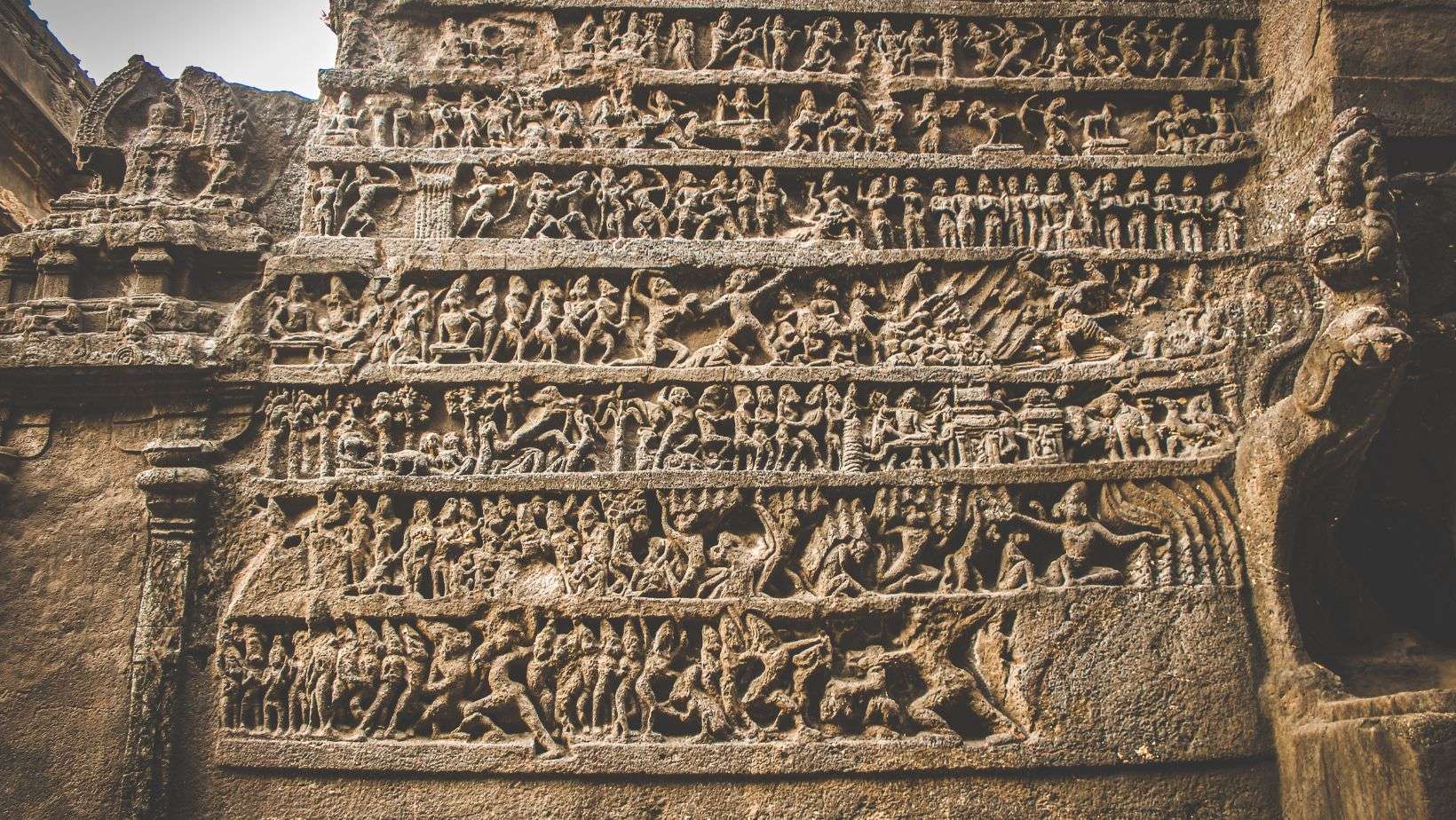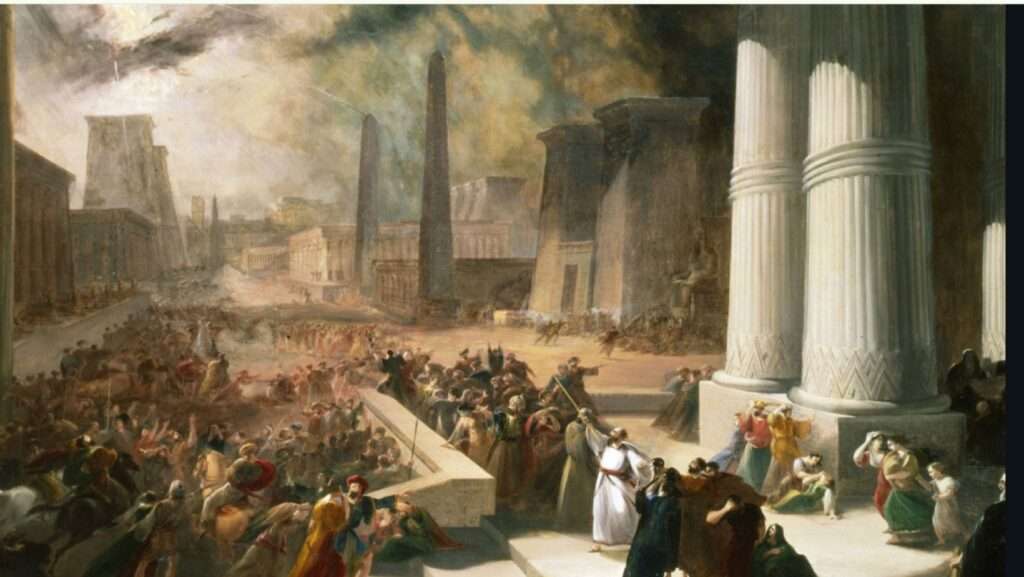Game Changers: 10 Historical Events That Altered the Course of Humanity!

Those who cannot remember the past are condemned to repeat it.— George Santayana. This poignant reminder highlights the crucial role that historical events play in shaping our understanding of the present and future. From the rise and fall of empires to groundbreaking movements for freedom and equality, certain moments in history serve as pivotal turning points that alter the trajectory of humanity.

explore ten game-changing events that have fundamentally transformed the course of human history. These events not only reshaped societies and political landscapes but also laid the groundwork for modern civilization.
The Importance of Historical Events
Defining Historical Events
American Historical Events and Culture can be defined as notable occurrences that have had a profound impact on the course of human affairs. These events often reshape societies, influence political structures, or alter cultural paradigms. What qualifies as a significant event in history varies based on context and perspective; however, key characteristics often include widespread consequences, lasting effects, and the ability to evoke significant changes in human behavior and societal norms. For instance, the invention of the printing press revolutionized communication, while the signing of the Declaration of Independence redefined notions of freedom and governance.
Impact on Society
Certain historical events act as catalysts for societal transformation. They can bring about political revolutions, inspire social movements, or spark technological advancements that redefine everyday life. For example, the Industrial Revolution shifted labor from agricultural practices to manufacturing, leading to urbanization and changes in workforce dynamics. Similarly, the Civil Rights Movement challenged systemic inequalities and paved the way for broader discussions about human rights globally. These events not only reflect the struggles and aspirations of their time but also set the stage for future developments and cultural shifts.
Examples of Game-Changing Events
To understand the impact of historical events, consider a few that have dramatically altered the course of humanity. The Agricultural Revolution marked humanity’s transition from hunter-gatherer societies to settled farming, enabling population growth and the establishment of civilizations. The fall of the Roman Empire triggered a power vacuum that influenced the rise of feudalism in Europe. The signing of the Magna Carta introduced the concept of limited government and individual rights, laying foundational principles for modern democracies. Each of these events serves as a cornerstone in the vast tapestry of human history, highlighting the interconnectedness of our past and present.
The List of 10 Game-Changing Events
- The Agricultural Revolution
- Overview: The Agricultural Revolution marks the transition from nomadic lifestyles of hunting and gathering to settled farming communities around 10,000 BCE. This pivotal change allowed humans to domesticate plants and animals, leading to the establishment of agriculture as a primary means of sustenance.
- Impact: The shift to farming led to significant population growth as food became more reliable and plentiful. It also resulted in the development of permanent settlements, ultimately giving rise to complex societies, trade networks, and the early formation of civilizations.
- The Fall of the Roman Empire
- Overview: The collapse of the Roman Empire in the 5th century CE was influenced by various factors, including economic troubles, military defeats, and internal strife. The traditional date often cited is 476 CE, when the last Roman emperor was deposed.
- Impact: The fall resulted in a dramatic shift in power dynamics across Europe, leading to the fragmentation of the continent into smaller kingdoms and the rise of feudalism. It also marked the beginning of the Middle Ages, significantly affecting European culture and society.
- The Renaissance
- Overview: Spanning roughly from the 14th to the 17th century, the Renaissance was a cultural movement that emphasized the revival of classical learning, arts, and sciences in Europe. It saw the emergence of renowned figures like Leonardo da Vinci and Michelangelo.
- Impact: The Renaissance laid the foundation for modern thought, promoting inquiry, artistic expression, and exploration. It challenged traditional views and inspired advancements in various fields, including art, literature, and science, ultimately leading to the Age of Enlightenment.
- The Age of Exploration
- Overview: Beginning in the late 15th century, the Age of Exploration was characterized by significant voyages undertaken by explorers like Christopher Columbus and Ferdinand Magellan. This period opened up new trade routes and territories.
- Impact: The exploration led to the establishment of global trade networks, cultural exchanges, and colonization. It dramatically reshaped the world map and had lasting effects on indigenous populations, often resulting in exploitation and cultural assimilation.
- The Industrial Revolution
- Overview: The Industrial Revolution, starting in the late 18th century, marked a transition to mechanized production and technological innovation, primarily in Britain before spreading globally. Key inventions included the steam engine and spinning jenny.
- Impact: This revolution led to rapid urbanization as people moved to cities for factory jobs. It transformed labor practices, economic structures, and living conditions, paving the way for modern economies and significant societal changes.
- The American Revolution
- Overview: The American Revolution (1775-1783) was fueled by colonial resistance to British taxation and governance. The Declaration of Independence in 1776 symbolized the colonists’ desire for autonomy.
- Impact: The revolution introduced democratic ideals, influencing global independence movements and inspiring future democracies. It challenged the monarchy and emphasized concepts of liberty, rights, and governance by the people.
- The Abolition of Slavery
- Overview: The abolitionist movement gained momentum in the late 18th and 19th centuries, driven by key figures like Frederick Douglass and Harriet Tubman. It sought to end the transatlantic slave trade and slavery itself.
- Impact: The abolition of slavery marked a significant advancement in human rights and social justice. It led to societal shifts, challenging entrenched systems of racial inequality and laying the groundwork for ongoing civil rights movements.
- World War I and II
- Overview: World War I (1914-1918) and World War II (1939-1945) were global conflicts that reshaped geopolitical boundaries and power structures. Key causes included nationalism, militarism, and alliances.
- Impact: These wars resulted in significant geopolitical changes, including the formation of the United Nations to promote peace and cooperation. They also prompted discussions about human rights and led to shifts in global power, establishing the United States and the Soviet Union as superpowers.
- The Civil Rights Movement
- Overview: The Civil Rights Movement in the United States (1950s-1960s) aimed to end racial segregation and discrimination against African Americans. Key events included the March on Washington and the Civil Rights Act of 1964.
- Impact: This movement made significant strides toward racial equality and inspired social justice movements worldwide. It raised awareness of human rights issues and contributed to legislative changes aimed at ensuring equal rights for all citizens.
- The Digital Revolution
- Overview: The Digital Revolution, which began in the late 20th century, is characterized by the rise of computers, the internet, and digital technologies. It transformed communication, business, and daily life.
- Impact: This revolution has fundamentally altered how people interact, access information, and conduct business. It has created a globalized world, impacting economies, cultures, and personal relationships in unprecedented ways.
The Lasting Legacy of These Events
Cumulative Impact
The historical events highlighted in this blog are not isolated incidents; they are interconnected threads in the fabric of human history. Each event has influenced subsequent developments, creating a complex web of cause and effect that continues to shape our world today. For instance, the Agricultural Revolution set the stage for the rise of civilizations, which in turn led to the emergence of political systems, cultural practices, and technological advancements.
Lessons Learned
Studying these game-changing events offers invaluable lessons that can guide us in navigating the complexities of the present and future. One critical lesson is the importance of resilience and adaptation. Throughout history, societies have faced significant challenges and upheavals, often emerging stronger by learning from their experiences. The Civil Rights Movement, for example, teaches us that sustained advocacy and collective action can lead to meaningful change.
Explored several pivotal events that have profoundly influenced our society and shaped the world as we know it today. From technological advancements and social movements to significant political changes, each event has contributed to the ongoing narrative of human progress and development. Understanding these moments not only helps us appreciate our history but also highlights the importance of learning from the past.
How This One Event in 1903 Shaped Modern America?
10 American Women Who Quietly Changed History
The Mysterious Events That Changed America’s Identity
America’s Top 5 Most Misunderstood Historical Figures
America’s Lost Cities: Where Are They Now?
Hidden Moments in U.S. History That Deserve More Attention
America’s Forgotten War Heroes: The Names History Books Missed
The Untold Stories of America’s Founding Fathers
10 American Historical Events You’ve Never Heard Of That Changed Everything